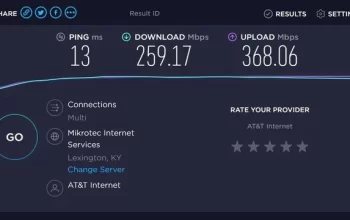If you’re looking for a way to make free calls without breaking the bank, look no further than internet calling. It’s a great solution for people who live in areas with poor cellular reception, or for businesses that need to call employees on the go.
If you enable WiFi calling, your phone will automatically switch to it if the internet connection is stronger than your carrier’s cellular network. However, your carrier may deduct your call minutes from your monthly allotment or charge you data usage fees.
Wi-Fi Calling
Wi-Fi calling is a great alternative to making calls over cellular networks. It can help save money and improve your voice quality.
It also makes it easier for users to communicate with colleagues who are far away from a cellular tower. This is particularly useful for employees who telecommute.
Unlike traditional cellular calls, which are taken from your monthly allowance, Wi-Fi calls don’t incur any extra fees. However, they may incur additional data charges.
To enable Wi-Fi calling, find your phone’s settings and tap on the Wi-Fi calling option. You’ll be asked to confirm that you want to enable it, and enter your address so emergency services can find you if you call 911 with Wi-Fi.
VoIP
Internet calling (VoIP) is a great option for small businesses that are looking to save money. It’s more efficient and allows you to make international calls at a lower cost.
VoIP technology is also more user-friendly than traditional phone systems. This means that businesses can take advantage of more features and tools that will enhance their productivity.
However, there are some things that you need to consider before switching over to VoIP. First, you need a high-quality internet connection and a reliable phone line.
In addition, you need to ensure that your workers and administrators know how to use the system and who is in charge of it. These steps are essential to making sure that you have a successful business communication system. This will ensure that your customers get the best customer service possible.
Skype
Skype is an internet calling service that allows you to talk with people from around the world. You can also use it to send messages, files, and photos.
The service has a variety of features that you can choose from, including voice-activated calls and free mobile/landline calling for selected territories. It is available on a wide range of devices, including computers, tablets, and smartphones.
Skype is a peer-to-peer service that does not provide end-to-end encryption, so it can be susceptible to security flaws. It also doesn’t allow you to verify contacts’ identities, which can make it difficult to prevent identity theft. Nevertheless, Skype has a number of advantages over other internet calling services. It’s easy to set up and has a variety of calling options.
Viber
Like Skype, Viber enables users to communicate with each other over the internet. It also offers features like video calls, group chats and instant messages.
For a fee, Viber can reach out to landlines and mobile phones for international calls. However, Viber international calls can be expensive due to the high mobile carrier rates.
To avoid this, make sure you preload your Viber Out account with credit before you leave home or travel abroad.
If you have a Viber Out subscription, call your friends and family using the low international calling rates. Viber Out uses your internet data to call international numbers and does not use standard calling rates from your phone carrier.
Messenger
Facebook Messenger is an internet calling app that offers one-to-one and group calls to users around the world. It is available on a variety of devices and can be downloaded for free.
The app is a good choice for connecting with friends, family members, and businesses online. It has many communication features including video calling and a feature that lets you send money to your friends.
Facebook recently introduced a new dedicated tab for all the calls you make or receive in Messenger. According to Meta, daily calls on Messenger have increased by 40% in the last two years.





